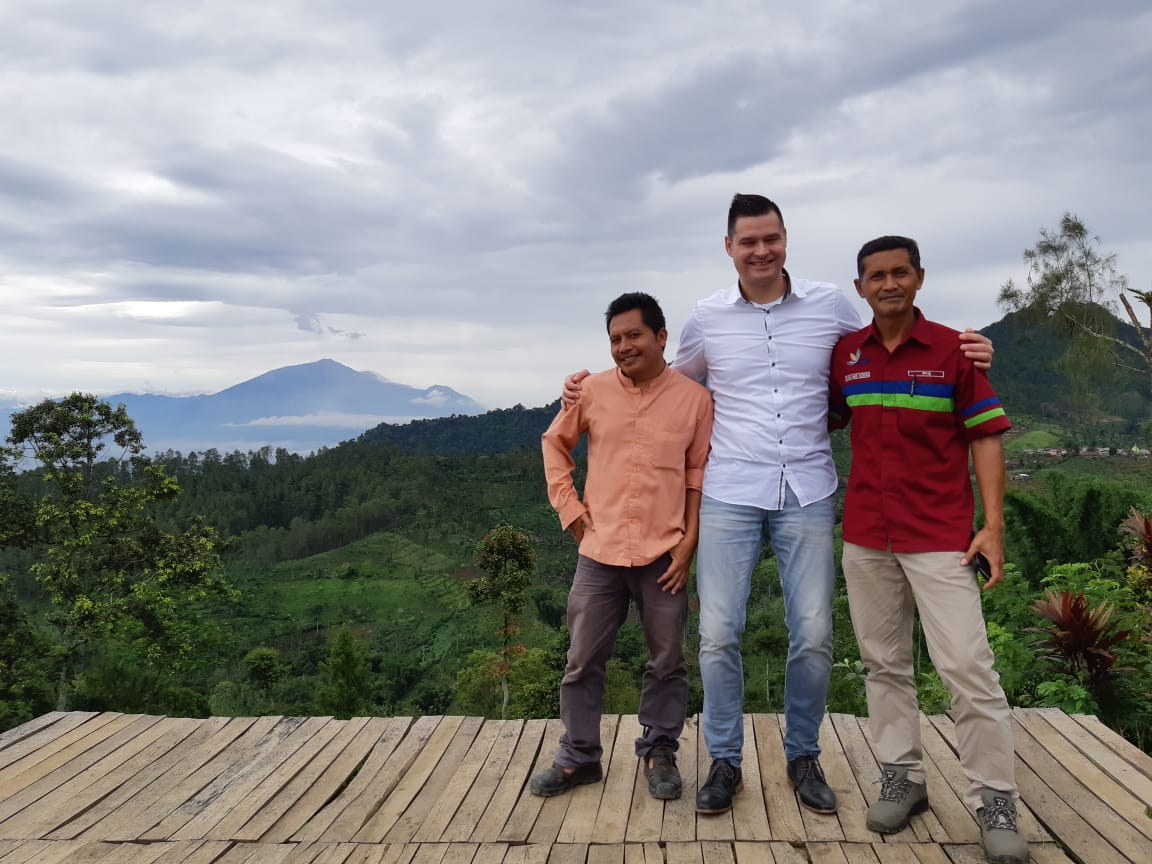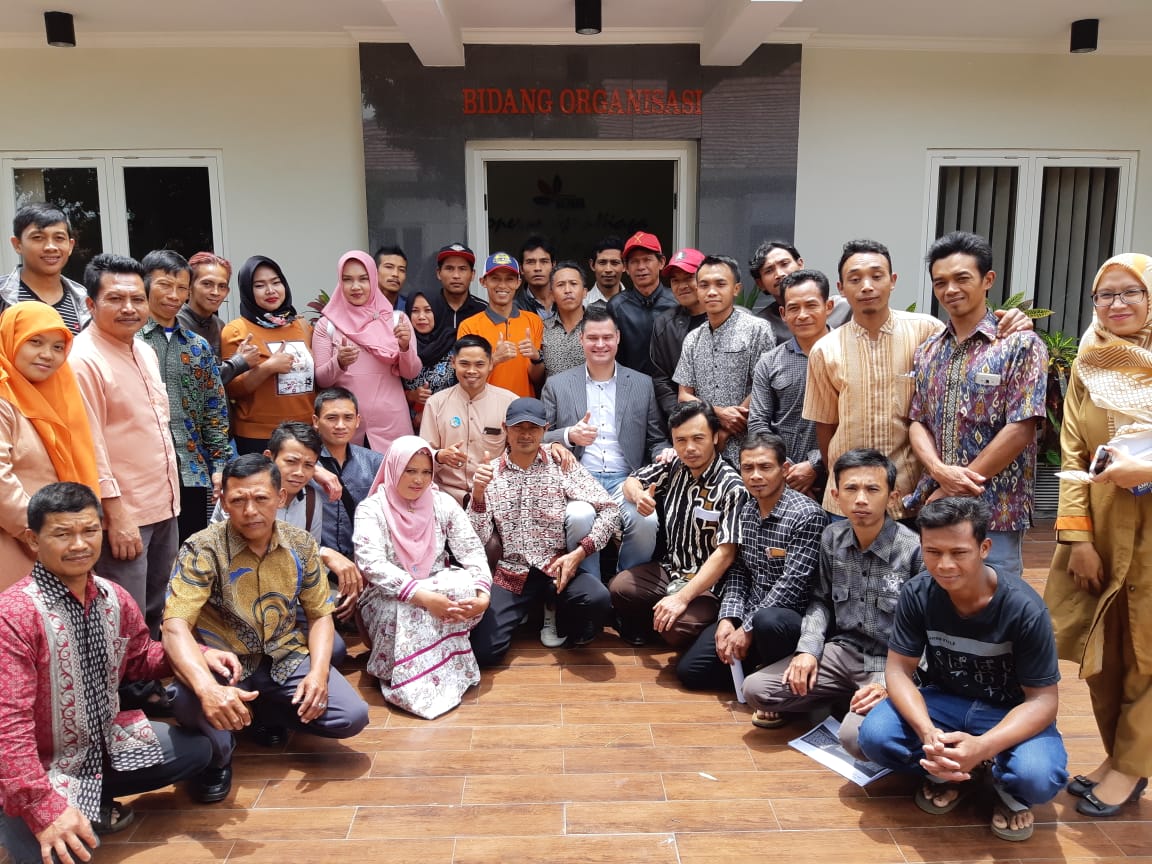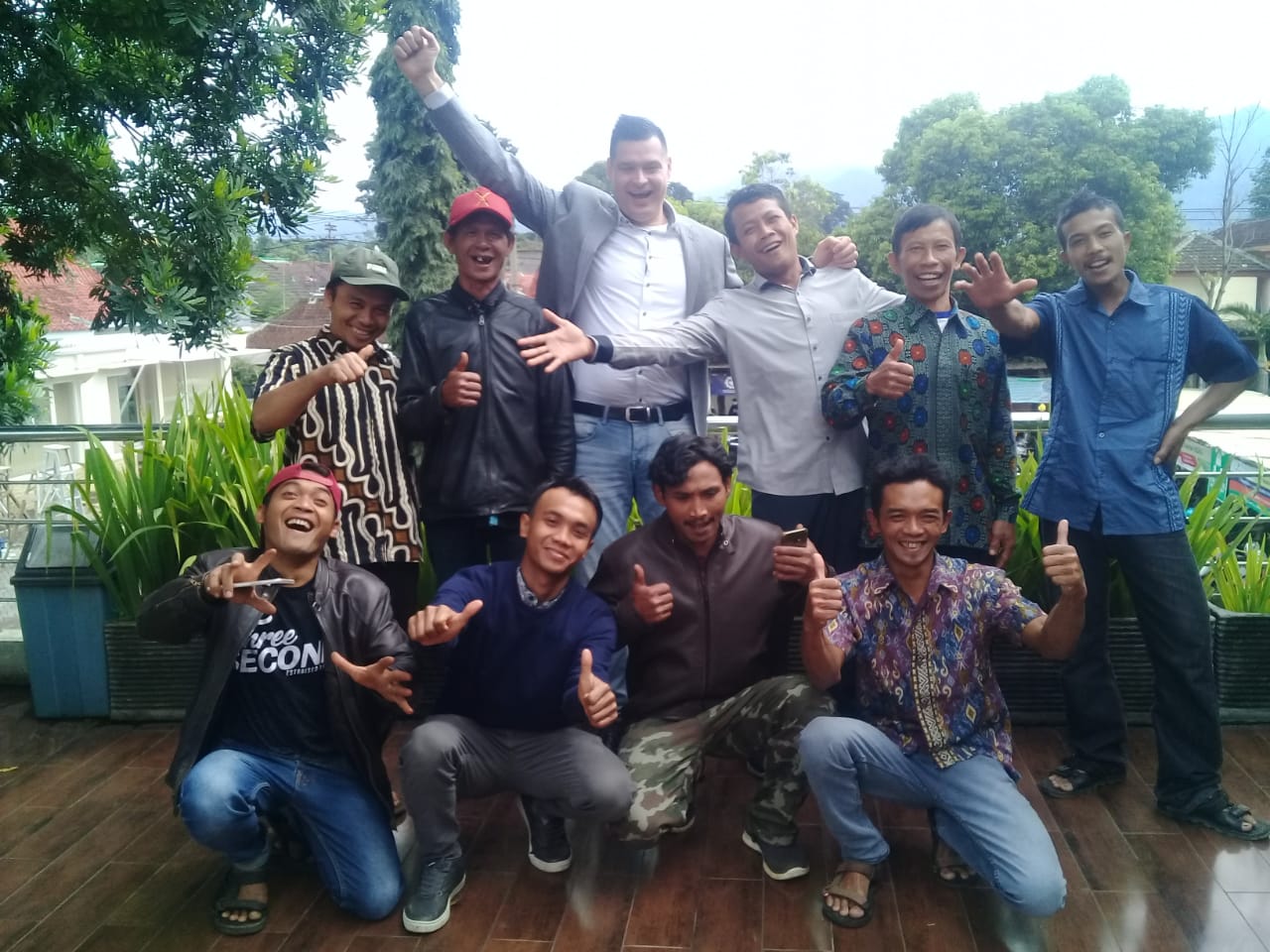Agriculture, Sustainability and Youth
10-04-2020 14:33:12
The kick-off Youth workshop is the first step to develop a mutual focus and create space for youth to start youth activities, youth groups or projects. A couple of months after the kick-off Youth workshop the Agriterra business advisor visits the cooperative and talks directly to the youth council about their progress. Normally, we see many groups undertaking an action, creating youth councils, projects and possibilities for youngsters to become a farmer.
The KAN Jabung cooperative in Indonesia, after participating in the kick-off Youth workshop, set up a Youth Council to work out the project of setting up a manure processing factory. Next to this, the Youth Council of KAN Jabung, as a follow-up action, recently conducted an assignment of manure processing basic knowledge with the Agripool expert Rob Berkers, project manager Food & Agri for Rabobank Netherlands.

During the assignment of manure processing basic knowledge with the Agripool expert Rob Berkers
Manure is not a waste, it is a valuable resource
When Homo Sapiens gave up the nomadic life, human started keeping livestock, working the land, and growing crops. Since then, we have manure. It was not a problem because our system allows natural recycling, to re-use manure in agriculture (nutrient cycle). However, not so long ago, many farmers started using chemical fertilisers that rewarded us higher yields in a shorter time. Many of them argued that artificial fertiliser is easier, cheaper, and faster. Yet they lost sight of something valuable for nature; livestock manure.
The context
With a population of about 160 million, Java is the most populous island in the world. And with over 1.100 people per km2, it is also one of the most densely populated parts of the world. Due to Java’s volcanic origin, the island has exceptional fertile land and combined with enough rainfall, this allowed the development of intensive agriculture. Population, agriculture and remaining nature are all “fighting” for remaining land, space, resources, and environment. Because of a better climate for dairy farming, most dairy farms are in the mountains. Until this moment, all dairy farmers literally flush their manure every day, directly into the river, causing environmental pollution. And all manure ends up in the valley where the city of Malang is located. As a result, resistance against dairy farming from society is growing, and this is the direct motive for KAN Jabung, a dairy cooperative in Malang Region, to start looking for possibilities for proper manure management.

During the assignment in Indonesia, KAN Jabung, Agriterra business advisor Wenty Octisdah and Agripool expert Rob Berkers
The workshop and the youth council
The KAN Jabung cooperative participated in the kick-off Youth workshop, which its main objective was to increase the involvement of young generation in the cooperative by setting up a Youth Council. During the workshop, KAN Jabung presented their plan to set up a waste-factory. Also, they made a plan to set up a youth council really fast and wrote down concrete actions. The projects were big and ambitious that demanded a lot of commitment from the youth to fulfil it. Luckily, they included the setup of a youth council and planned for the first meetings with the board members, who were really happy with the results of the workshop and gave the youth space to work out their ideas.

The waste-factory
This waste-factory now collects manure from farms and uses it to create energy and fertilisers. In particular, the manure of the dairy farmers is used for the production of biogas which is available for cooking and lightening in the households. In this process, the energy is taken out of the manure, but the fertilising value of the manure remains the same.
The problem
Yet, an anomaly situation exists in Jabung, on the one hand, all manure is flushed away into the river. On the other hand, only chemical fertilisers are used for all crops in the area. Chemical fertilisers are lack of organic matter and trace minerals. After years, the from origin very fertile land becomes depleted from organic matter and trace minerals, resulting in lower yields from the land. Closing the nutrient cycle again will help to solve this problem. Therefore, we advised them to close the nutrient cycle; from manure to nature – manure is never a waste, it is a valuable resource, and also a feasible business.
Closing the nutrient cycle has at least three advantages;
- reduce pollution to the environment
- bring back the fertility to the land
- reduce the cost of chemical fertilisers and
- cash flow for KAN Jabung by selling the compost.
How the future will look like?
KAN Jabung cooperative’s vision is to ensure members’ farm sustainability and their objectives are to eliminate or minimise pollution from members’ farms, add value to farm waste for additional income and provide more job opportunities for local youth. After all, they believe that youth can participate and contribute to the cooperative development, can develop and modernise the farm business. The cooperative gives as much as possible space to young farmers who have the potential to increase the scale of business of the cooperative and prepare the succession of leadership of the cooperative. They expect that in 2 years, they will process 30-ton animal waste per day into high-quality organic fertiliser.
There are of course more questions to be answered, such as business calculation, margin per farmer, per year, etc. But, is it always about business and numbers? What if we aim to make a change! The possibility to create a better world, to help crops grow and strengthen nature; more processed livestock manure, less artificial fertilisers, close the cycle around nature and food. We want to inspire humanity to do circular agriculture, which benefits the environment, climate, biodiversity and animal welfare; be more sustainable.
Background info
KAN Jabung is located near Malang in East Java. It’s a multipurpose agricultural cooperative with 3 main activities: Milk- processing and trading to industry (62tons/day), sugarcane trading to industry and producing animal feed mainly or cows. Next to this, they have some small-scale activities in the region, for example, financing. The main objective is to be a sustainable and competitive agribusiness cooperative. The cooperative has 1900 active members, about 10% of them is youth. KAN Jabung is proud of the fact that they stay in the list of the top 5 of the biggest dairy cooperatives and in the top 100 of overall cooperatives in Indonesia. At this moment they want to set up a young farmer academy, involved the youth in their CSR programme and prepare the youth for joining the board of the cooperative.
Authors
Rob Berkers grew up at a farm in the South of the Netherlands, and currently works as Project manager Food & Agri for Rabobank Nederland. One of his areas of attention within Rabobank is manure and manure processing.
Wenty Octisdah is an Agriterra business advisor in Indonesia. She joined Agriterra in 2019, has a bachelor’s degree in social welfare studies and finished her master’s degree in environmental policy. She has developed expertise in the area of environmental sociology and sustainable economic development.